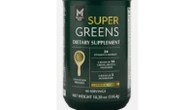Imagine this: You’re scrolling online late at night and with just a few clicks, you can order gummies that promise to boost your sex drive, a cream claiming to rebalance your hormones, or even prescription drugs from a telehealth site that spent millions on a Super Bowl ad without any disclaimers or mention of side effects. The solutions seem endless, and like most things that sound too good to be true, they often are.
After 25 years in biotech and 10 years spent squarely at the nexus of science and women’s health, I’ve seen how hype can often race ahead of science. Evidence-based treatments for women remain chronically underfunded and underdeveloped. It’s no wonder the wellness industry has rushed to fill the void with promises that sound like medicine but don’t measure up.
WHEN WELLNESS FILLS THE GAP
At best, many wellness products are ineffective, with claims based on anecdotal evidence or poorly designed studies. At worst, they can be outright dangerous. A 2024 analysis found that corporations promoting healthcare interventions that are not supported by evidence, or conceal or downplay evidence, increase the risk of harm to women through inappropriate medicalization, overdiagnosis, and overtreatment.
Take the multibillion-dollar supplement industry. Celebrities like Kourtney Kardashian and her Lemme line of wellness supplements are tapping into genuine unmet needs—where women want solutions to problems that the medical establishment has overlooked. But there’s a gap between marketing and accountability. The Lemme Purr web page, for instance, tells us that “clinically-studied SNZ-1969 probiotics support vaginal health and freshness.” While there is some data that the 50+ year old strain supports gut health, a literature search did not identify any strong peer-reviewed evidence that SNZ-1969 supports vaginal health. The reality is that the FDA doesn’t have a mandate to review supplements for safety or effectiveness before they hit the market. That means companies can sell products with minimal oversight, leaving consumers to trust claims that are based on marketing, not science.
Now compare that to therapies developed through the FDA: Treatments designed to deliver specific outcomes, studied in rigorous clinical trials, and evaluated for safety, quality, and effectiveness. Unlike supplements or untested formulas, they must demonstrate measurable benefit before they can ever reach patients. The process could not be more different. But to the average consumer, the distinction is almost invisible.
SEPARATE EVIDENCE FROM EMPTY PROMISES
Women shouldn’t be left to navigate risk alone. That’s why they need tools to separate evidence from empty promises. And companies providing health products should make it easy for them to find the information. Before trying a new product, women should ask themselves three questions:
- Was it clinically tested or was it studied in a randomized placebo-controlled trial? “Clinically tested” could mean almost anything—maybe five people tried it and said they felt better. Maybe it was a survey given to a few loyal customers who already love the brand. But that’s hardly proof. A “randomized placebo-controlled trial” means that participants are randomly assigned to receive either the treatment or a look-alike placebo, making it the gold standard in medicine to understand if an intervention truly has an effect.
- Was the whole product tested—or just the ingredients? A common loophole in wellness marketing is citing evidence for individual ingredients but not testing the final product formulation. Just because an ingredient has been “clinically studied” doesn’t mean the finished product is safe or effective.
- Is the product FDA-approved or made in an FDA-regulated facility? Regulation matters. Without it, there’s no guarantee of safety or consistency. 503B outsourcing facilities are FDA-regulated and must follow strict manufacturing and safety standards, ensuring consistency, quality, and clinician trust.
Women deserve more than quick fixes or empty promises when it comes to their health. As the lines between wellness and healthcare continue to blur, companies that commit to accountability and rigorous science stand to build lasting trust with consumers to unlock massive, underserved markets.
Sabrina Martucci Johnson is founder and CEO of Daré Bioscience.




No comments